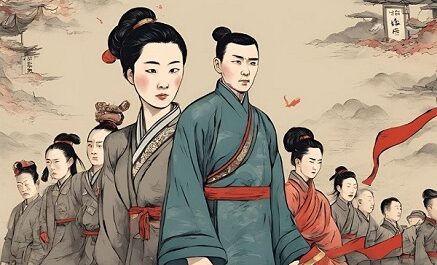Learn Chinese Idiom with Pinyin and English

- Idiom in Chinese-儿女私情。
- Pinyin of Idiom– ér nǚ sī qíng.
- Idiom’s Meaning in English– Personal affections or romantic feelings, often referring to matters of love between men and women. The idiom “儿女私情” refers to personal or romantic affections, typically focusing on matters of love between a man and a woman. It often implies feelings that are intense and deeply personal, sometimes considered less important or distracting from more significant matters.
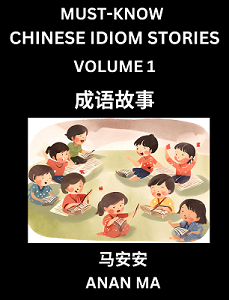
Chinese Idiom Stories Books (HSK All Levels):
- Books to Learn Chinese Idiom Stories (Part 1)
- Books to Learn Chinese Idiom Stories (Part 2)
- Books to Learn Chinese Idiom Stories (Part 3)
Learn Chinese Idiom Story in English (成语故事的英文)
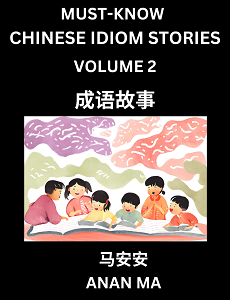
In ancient times, there was a young scholar who was very talented but deeply immersed in a romantic relationship. He fell in love with an embroidery girl from the village, and their bond was strong and unbreakable. However, the scholar had always dreamed of going to the capital to take the imperial examination and pursue fame and success. Torn between love and ambition, he felt conflicted. An elder from the village advised him that life was not just about personal affections, but also encompassed a broader world and responsibilities. Inspired by these words, the scholar decided to put aside his romantic feelings and resolutely embarked on the journey to the capital. Years later, after achieving success and recognition, he returned to his hometown and reunited with his beloved embroidery girl. Their personal affections became the most cherished memories of their lives.
Learn Idiom Story in Chinese (成语故事)
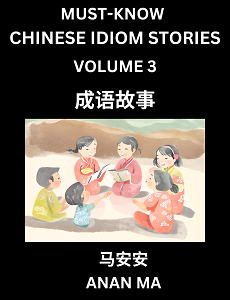
在古代,有一位年轻的书生,他才华横溢,却深深陷入了一段儿女私情之中。他与村里的绣花姑娘相爱,两人情深意切,难舍难分。然而,书生一直怀揣着赴京赶考、求取功名的梦想。在爱情与前途之间,他陷入了纠结。村里的长者告诉他,人生除了儿女私情,还有更广阔的天地和责任。书生听后,决定放下私情,毅然踏上赴京之路。多年后,他功成名就,回到家乡,与绣花姑娘再续前缘,而这段私情也成为了他们人生中最珍贵的回忆。
Learn Keywords with English, Simplified Chinese Characters, and Pinyin (关键词)
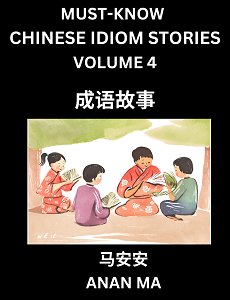
- 书生(shūshēng): Scholar
- 绣花姑娘(xiùhuā gūniáng): Embroidery Girl
- 儿女私情(érnǚ sīqíng): Personal affections or romantic feelings赴京赶考(fùjīng gǎnkǎo): Go to the capital to take the imperial examination
- 功成名就(gōngchéng míngjiù): Achieve success and win recognition
Pinyin of Idiom Story (故事的拼音)
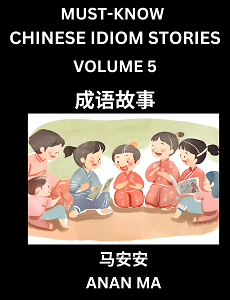
Zài gǔdài, yǒuyī wèi niánqīng de shūshēng, tā cáihuáhéngyì, què shēn shēn xiànrùle yīduàn érnǚ sī qíng zhī zhōng. Tā yǔ cūnlǐ de xiùhuā gūniáng xiāng’ài, liǎng rénqíng shēnyì qiè, nán shě nán fēn. Rán’ér, shūshēng yīzhí huáichuāizhe fù jīng gǎnkǎo, qiú qǔ gōngmíng de mèngxiǎng. Zài àiqíng yǔ qiántú zhī jiān, tā xiànrùle jiūjié. Cūnlǐ de cháng zhě gàosù tā, rénshēng chú liǎo er nǚ sī qíng, hái yǒu gèng guǎngkuò de tiāndì hé zérèn. Shūshēng tīng hòu, juédìng fàngxià sī qíng, yìrán tà shàng fù jīng zhī lù. Duōnián hòu, tā gōngchéngmíngjiù, huí dào jiāxiāng, yǔ xiùhuā gūniáng zài xù qián yuán, ér zhè duàn sī qíng yě chéngwéile tāmen rénshēng zhōng zuì zhēnguì de huíyì.

